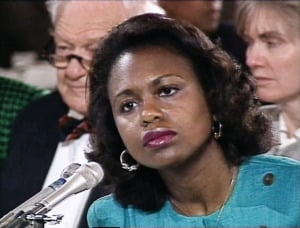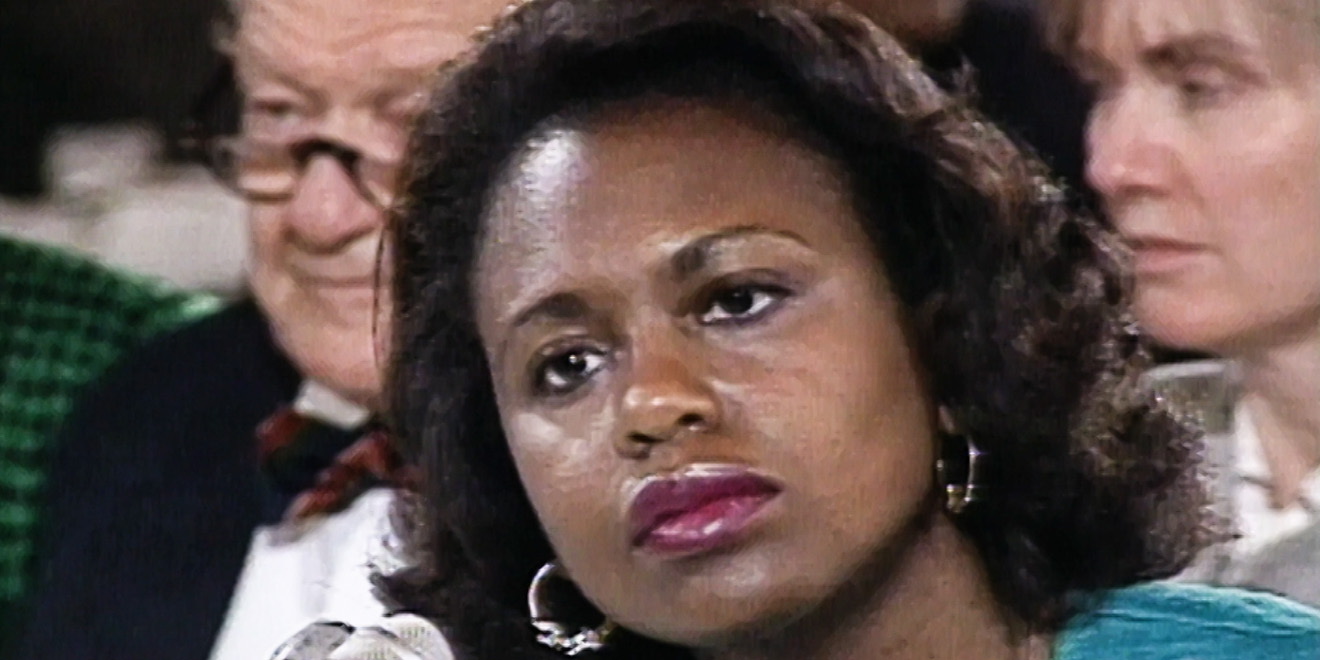
Like many political events of the past few decades, Anita Hill’s 1991 testimony before the Senate’s Committee on the Judiciary can be recognized from a few token soundbites. Hill, then an attorney-advisor to Clarence Thomas, accused Thomas of sexual harassment preceding confirmation hearings for his nomination as Associate Justice of the Supreme Court. Hill passed a polygraph test; Thomas declined, calling it a “high-tech lynching for uppity blacks.” According to the film “Anita: Speaking Truth to Power,” this phrase is a grossly misleading caricature of a difficult case.
The original hearing was televised on October 12. As a nod, it seems, both to the anniversary of Hill’s hearing and the recent controversy surrounding Title IX rights on campus, Stanford University sponsored a two-day conference from October 16 to 17 with Hill, now a professor at Brandeis University. The conference featured a new documentary and workshops on Hill’s hearing and sexual harassment in the workplace. “Anita: Speaking Truth to Power” was screened on October 16 at Paul Brest Hall, with a Q&A with Professor Hill afterwards.
Director Freida Mock’s documentary is a compilation of interviews with Hill and her colleagues and footage from the original hearing. Throughout the film, the audience is granted glimpses of a woman who remained remarkably poised while under attack from members of Congress.
In the course of the film’s commentary, Hill’s friends point out the imbalance of demographics at the trial’s outset. The Senate Judiciary Committee was homogeneously white and male (a much younger Joe Biden presided over the proceedings). Gender and race were hot-button topics that received only a cursory evaluation – the film commits a number of blundering inquiries to memory.
In an interview, John Carr, a friend of Hill’s, underscored the invisible consequences of the trial. “She paid the price,” said Carr. “She could’ve been a judicial nominee.” The film highlighted the committee’s bouts of targeted questioning, most of which required that Hill reiterate embarrassing details of her encounters with Thomas, seemed designed to make her sound absurd.
Hill’s quiet resilience provided a foil for Thomas’s fiery rebuttals. “I think that this today is a travesty,” said Thomas during his testimony, in reference to the hearing in whole. He proceeded to categorically reject every accusation against him – the phrase “high-tech lynching” was used during this opening salvo.
“He played the race card,” said Carr of Thomas’s phrasing. The focus of the trial promptly turned away from sexual harassment and towards race. For this reason, perhaps, Thomas was cleared for his hearing and confirmed as a justice by a vote of 52-48, the narrowest margin to date.
Hill returned to her teaching position at the University of Oklahoma soon after the trial. Today, Hill speaks on sexual harassment, using her experiences as a vehicle. She engaged the audience in a Q&A session following the film screening.
One female audience member expressed her shock at the blatant rudeness of committee members’ questions: “Has anyone apologized?”
Hill’s response was at once illuminating, disappointing, and inspiring. “No, no apologies,” she said. “[In] Washington, apologies are easy – they don’t mean anything. What I want is action.” She described her faith in the younger generation of female leaders and politicians, young women who could use her experience to move forward.
Hill voiced her hope for a more gender- and ethnically-diverse Congress. “How different would everything have been with the right deliberative body?” asked Hill. A governing body, she said, that would have been “willing to challenge conventional thinking.”
